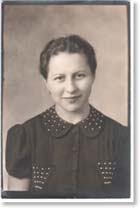Books |
Little Heathens: Hard Times and High Spirits on an Iowa Farm during the Great Depression
Mildred Armstrong Kalish
By
Published: Oct 02, 2010
Category:
Memoir
And we think we have it tough.
Mildred Armstrong was born in 1922, on a farm near Garrison, Iowa. When she was five, her grandfather banished her father — sent him packing so completely that his kids never learned when or where he lived and died. When she was eight, her region was struck by the Depression, freezing winters and raging winds. And there they were: grandfather and grandmother, a harried mother, and four children, none older than ten.
What did they have? One another. Their community. And chores, lots of chores.
Evening chores meant feeding and watering pigs and chickens, gathering eggs, cleaning the milk separator. Washing clothes was a hand process until 1936, sometimes with bras and panties concealed inside pillowcases. Cooking, starting with the killing and cleaning of the chicken. Refolding the wax paper that your lunch sandwich was packed in. Cleaning walnuts. Gathering wood.
School was a mere one-and-a-half miles a day. Of course they walked. And there was no indoor toilet at school until 1936.
Yes, they worked hard. But consider the lessons the young Mildred learned.
Aunt Belle sent a young beau away. None followed. “I’m kind of sorry I was so cold to him,” she said, half a century later. “It’s been kind of lonesome sometimes.”
Not a wasted word.
A sister got sick at school. The teacher asked the principal to watch her class, “picked my sister up in her arms and carried her all the way to our house.”
Wouldn’t that be…illegal now?
And how shrewd is this? After chores, the kids were given “permission” to read. Because reading wasn’t a task, it was a privilege. So the kids gobbled books up.
Credit didn’t really exist. Thrift was a deity. To “eliminate pimples and cleanse our skin,” the girls slathered a lightly beaten egg white on their faces and let it dry. Apple cider vinegar was a hair rinse. Whatever was left in a skillet after frying was mixed with a little water and added to a jar, to be used for gravies and dressings.
Mildred Armstrong Kalish is too nice a person to hammer home the obvious conclusion at length, but we get that people living that way, in that community, in that time, mostly grew straight and decent and hardworking. Refreshing? Like a cool drink from your own well.
“Little Heathens” is unlike many of the memoirs that come out these days.For one thing, it’s true — Mildred Armstrong Kalish wouldn’t think of telling a fib and risking the Wrath of God. For another, she finds herself more typical than exemplary. Many people had her experience; in her view, she’s just the one who left the farm and became a professor and, at an age when memory slips, still had the wits to write out her life story. So while other memoirists are me-me-me, her book is stories and facts, with the occasional sly opinion. The result is tart as a farm apple, warm as a wood stove and welcome as a neighbor’s visit when you’re ill.


